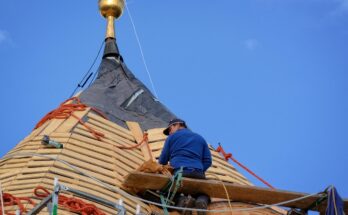Termites are a serious concern for homeowners, especially in warmer, more humid climates where they thrive. If you’re a property owner on the Gold Coast or in similar regions, understanding when to schedule a termite inspection can help you catch problems early and avoid costly damage.
So, when is the best time of year for a termite inspection?
While termites can be active year-round, some seasons pose greater risks and offer better opportunities for early detection. In this article, we’ll explore seasonal termite behaviour, how climate affects infestation risks, and why timing your inspections properly can make all the difference in protecting your home.
Understanding Termite Seasonality
Contrary to popular belief, termites don’t take time off in winter. These pests are active 12 months a year, especially subterranean termites, which live underground where temperatures remain relatively stable.
However, their activity becomes more visible during the warmer months, especially in spring and early summer. This is when swarming often occurs—reproductive termites leave their nests in large numbers to start new colonies. If you notice discarded wings or flying termites around your home, that’s a sign of a mature infestation.
That said, termite inspections should not be limited to the warmer months. Termites can remain active unnoticed during cooler seasons, and that makes year-round vigilance essential.
Best Seasons for Termite Inspections
Spring: The Ideal Time
Spring is widely considered the best time of year for a termite inspection. As temperatures rise and humidity increases, termites begin to swarm. This reproductive phase is a major red flag for potential infestations.
During spring:
- Termite colonies become more active
- Swarmers are visible, making detection easier
- Early signs of infestation may be spotted before major damage occurs
If you’re located in a high-risk area, like the Gold Coast, booking a termite inspection Gold Coast professionals recommend in early spring gives you the advantage of catching any problems as they start to develop.
Summer: High Activity, High Risk
Termites thrive in warm and moist environments, making summer a peak season for infestations. Subterranean termites are particularly active as they search for food sources—like the timber in your walls, floors, and roof frames.
Inspections during summer are still highly effective, particularly if you missed the spring window. It’s also an excellent time to assess environmental risks, such as damp soil, poor drainage, or wood piles near the house.
Autumn: A Great Preventative Window
While termite activity begins to slow slightly in autumn, inspections during this season can serve as a preventative measure heading into winter. It’s the perfect time to:
- Check for moisture issues after summer storms
- Evaluate structural timber for hidden damage
- Prepare your property with termite barriers or baiting systems
Autumn inspections also give you peace of mind through the cooler months, knowing your home is secure before termites settle into deeper hiding spots.
Winter: Not Too Late
Although termites may be less visible in winter, they’re far from inactive. Subterranean termites, in particular, continue feeding and expanding their colonies below ground. While swarms are unlikely during winter, a professional can still identify internal activity using thermal imaging, moisture meters, and other tools.
For homes in coastal or temperate climates—like the Gold Coast—where winters are relatively mild, winter is still a valuable time to schedule an inspection, especially if it’s been more than a year since your last one.
Climate and Regional Risk Factors
In areas like the Gold Coast, the warm, humid conditions create an ideal environment for termite activity year-round. Properties close to bushland, with high soil moisture, or surrounded by timber structures are especially vulnerable.
That’s why it’s important to think of termite inspections not just seasonally, but as part of an ongoing maintenance plan. Scheduling a termite inspection Gold Coast homeowners can rely on annually—regardless of season—ensures you stay ahead of infestations before they cause significant harm.
Signs You Should Schedule an Inspection Immediately
Regardless of the time of year, there are certain signs that indicate you need a termite inspection right away:
- Hollow-sounding wood when tapped
- Mud tubes on walls, foundations, or brickwork
- Discarded wings near windows or doors
- Bubbling or peeling paint, resembling water damage
- Tight-fitting doors or windows (caused by termite damage)
If you notice any of these warning signs, it’s best to book a professional inspection as soon as possible—delaying can lead to serious structural issues.
What Happens After an Inspection?
If termites are detected during your inspection, your pest control technician will recommend a treatment plan based on the severity and type of infestation. Termite treatment Gold Coast providers typically offer a range of solutions tailored to local conditions, including:
- Baiting systems to eliminate active colonies
- Chemical barriers applied around the perimeter of the home
- Foaming or dusting treatments for localised infestations
- Timber treatments to protect vulnerable structures
The goal is not just to remove existing termites but to prevent future infestations. A trusted technician will also advise on environmental changes you can make to reduce risk—like improving drainage or removing wood-to-soil contact.
Year-Round Protection: The Smart Strategy
While spring may be the best time to catch termite activity early, the best strategy is year-round awareness. Think of termite inspections like servicing your car—it’s less about seasonality and more about consistency.
An annual inspection schedule ensures:
- Early detection before costly repairs are needed
- Updated information on your home’s risk profile
- Professional advice on prevention and treatment
- Peace of mind all year long
Whether it’s summer storms, spring swarms, or winter moisture buildup, each season carries its own risks. Staying proactive is the most effective way to protect your property and your investment.
Final Thoughts
While spring is often the most recommended time for a termite inspection due to increased activity and visible swarms, termites are a year-round threat—especially in warm, coastal regions. The best time for a termite inspection is the time before damage is done.
If you haven’t had your home inspected in the last 12 months, now is the right time—regardless of the season. Early detection is key to avoiding structural damage, expensive repairs, and ongoing pest issues.




